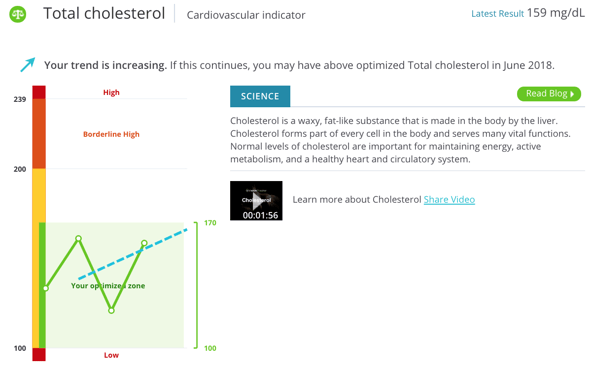U of M study: New blood test reveals risk for metabolic syndrome


Oxidized Cholesterol Strategy Reviews Blue Heron Health News - Peninsula Clarion
How Oxidized LDL might actually be 'good guy' -- ScienceDaily can Save You Time, Stress, and Money.
If you have high cholesterol or high blood pressure, your doctor can evaluate you to see if you have a high level of oxidized LDL in your body. A regular lipid profile blood test can offer you amount to cholesterol outcomes, however it doesn't test for oxidized cholesterol. A coronary artery calcium score CT scan can determine concealed cholesterol.

Oxidized Cholesterol: What You Should Know
You might disappoint any symptoms, so it is essential that you get regular physicals, specifically if you have any of the danger elements. Your medical professional can keep an eye on your oxidized LDL levels and treat you to prevent it from becoming worse. Research study is still being performed on oxidized LDL and the finest treatment.

How to Reduce Cholesterol Oxidation - YouTube
The 15-Second Trick For L-Carnitine supplementation reduces oxidized LDL

Oxidized low-density lipoprotein (LDL) is a potentially damaging kind of cholesterol that is produced in the body when typical LDL cholesterol is harmed by chemical interactions with free radicals. Together with inflammatory actions, totally free radicals can lead to hardening of the arteries (atherosclerosis). The resulting reduction in blood flow in your arteries increases your possibilities of having a heart attack or a stroke.
Westend61/ Getty Images How Oxidized LDL Kinds The oxidation of LDL is thought to take place when LDL cholesterol particles in your body respond with complimentary radicals; unstable particles that are produced as a result of regular metabolism, an illness, or direct exposure to toxic substances. Need More Info? , a type of chemical destabilization of molecules such as LDL cholesterol.
The Best Strategy To Use For Oxidized Cholesterol Strategy Reviews Blue Heron Health
In particular, oxidized LDL is a danger to your cardiovascular health. LDL cholesterol particles are not all the same size, and some are bigger than others. Smaller sized LDL particles are most likely to become oxidized, making them more destructive to your health. Some risk elements that appear to increase the levels of oxidized LDL include: Consuming a diet plan that is high in trans fats Smoking Improperly controlled diabetes Metabolic syndrome, which is frequently a precursor of diabetes Exposure to toxic substances through contamination and preservatives Tension When LDL becomes oxidized, it inhabits the inner lining (endothelium) of the body's arteries, such as the carotid arteries, the coronary arteries, and arteries that supply blood to your legs and arms.
